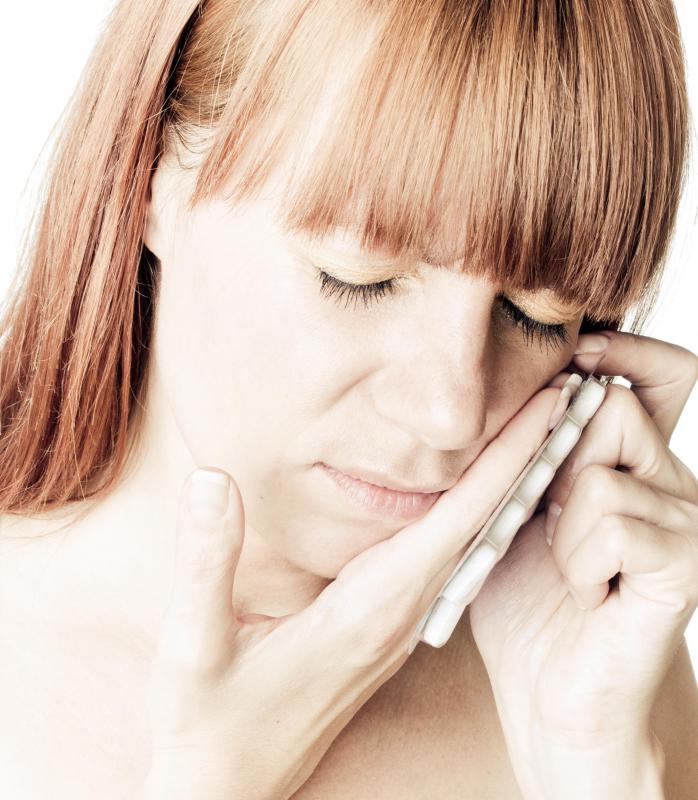At TheHealthBoard, we're committed to delivering accurate, trustworthy information. Our expert-authored content is rigorously fact-checked and sourced from credible authorities. Discover how we uphold the highest standards in providing you with reliable knowledge.
What is a Baby Root Canal?
A baby root canal is a dental procedure that may sometimes be performed on a primary tooth, also referred to as a baby tooth. In some situations, a dentist may recommend a baby root canal instead of extracting, or pulling, the affected tooth. This procedure may be considered when a cavity has extended to the center portion of the tooth and the dentist believes that a root canal may be able to save the tooth. There are two basic types of baby root canals, referred to as a pulpotomy and a pulpectomy. This type of procedure typically has a high success rate, although there may be individual factors that lower the chances of success.
Cavities are made of bacteria, as well as other potentially harmful particles. When the cavity grows larger and extends to the center of the tooth, an infection may develop. This can cause swelling, discomfort, or pain. If the remainder of the tooth appears to be healthy, a dentist may recommend a baby root canal in an attempt to save the tooth.

A procedure known as a pulpotomy is one method of performing a baby root canal. In this procedure, the blood and nerve supplies are only removed from the center of the tooth. A pulpectomy is a bit more involved, as the blood and nerve supply is removed all the way to the root of the tooth. A pulpectomy generally takes a little longer to perform than a pulpotomy. In both procedures, a thick filling material is used to replace the blood and nerve supply to the tooth.

A baby root canal is considered by many dentists to be a highly successful procedure, although this procedure is not always successful in saving the tooth. In some cases, all of the bacteria is not able to be removed by the procedure, and the tooth eventually falls out anyway. Swelling and inflammation that naturally occur as a result of the procedure may also cause the root canal to fail and the tooth to fall out.

Due to the risks of baby root canal failure as well as possible physical and emotional trauma to the child, many parents elect not to have this procedure performed on their child. As long as the child is not in any pain, it is believed by some that the possible benefits are just not worth the risks to the overall well-being of the child. Any parent considering this procedure should do considerable research, and it may be wise to get a second opinion if there are any concerns.
AS FEATURED ON:
AS FEATURED ON:















Discussion Comments
The fact that millions of root canals have been performed by dentists or oral surgeons when they were not even needed is common knowledge-- or this should be common knowledge anyway. You don't have to take my word for it. Go online and you can quickly see that this is true.
I would ask for a second opinion before I had any type of root canal. I think a parent should be cautious about having any type of root canal done on a child, too.
Baby root canals are not as painful as root canals done on an adult tooth. As you can see by reading this article, the procedures are not the same. For a baby tooth the area is numbed and since the surgery is not so invasive the recovery is much less uncomfortable.
I was told by our family dentist that my daughter might need to have the procedure done because she was still young and if the tooth was pulled then there might be a problem with the opening closing and the permanent tooth not being able to push to the surface. In the end, she didn't have to have the surgery, but that was an option for a while.
Am I the only one who doesn't understand this procedure? Why in the world would anybody want to spend money on a root canal for a baby tooth that isn't even permanent? I have had root canals as an adult and they are not fun.
I can't see putting a kid through the process of a baby root canal for a tooth that is going to fall out and be replaced by a permanent tooth before long. Once the tooth is gone what difference will it make if a dentist pulled the tooth or if the tooth was saved and then fell out on its own?
Post your comments